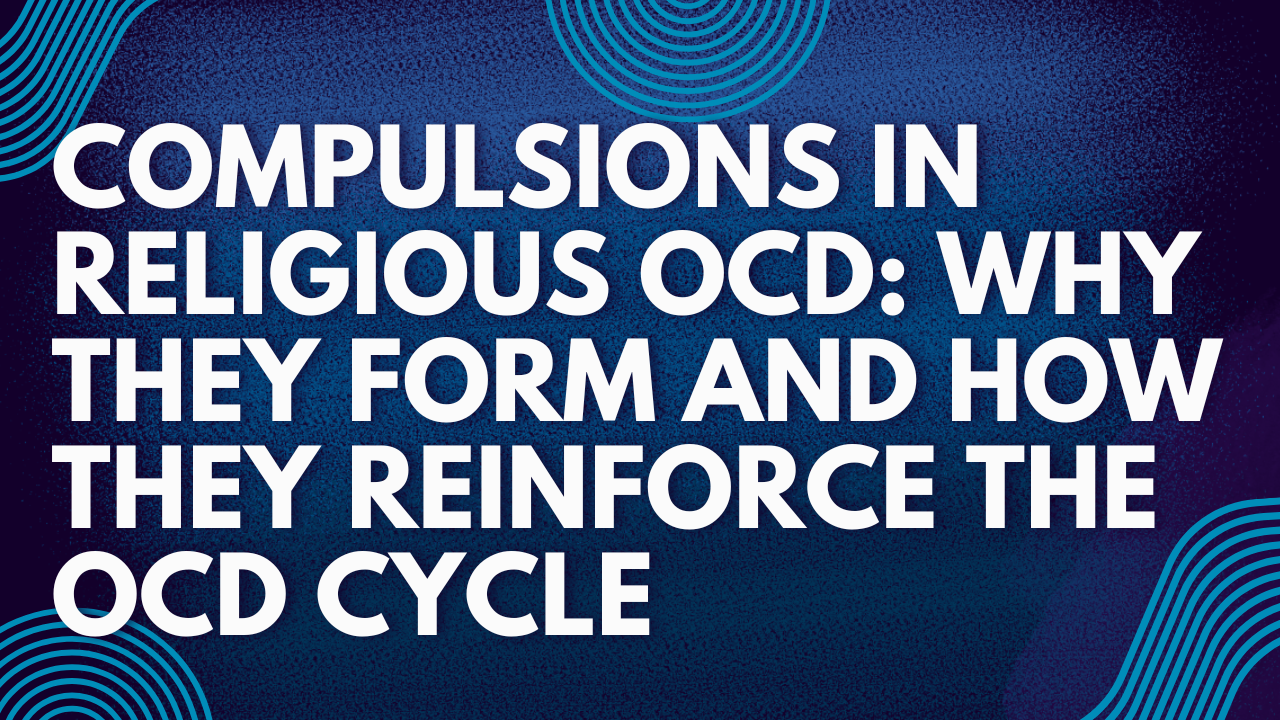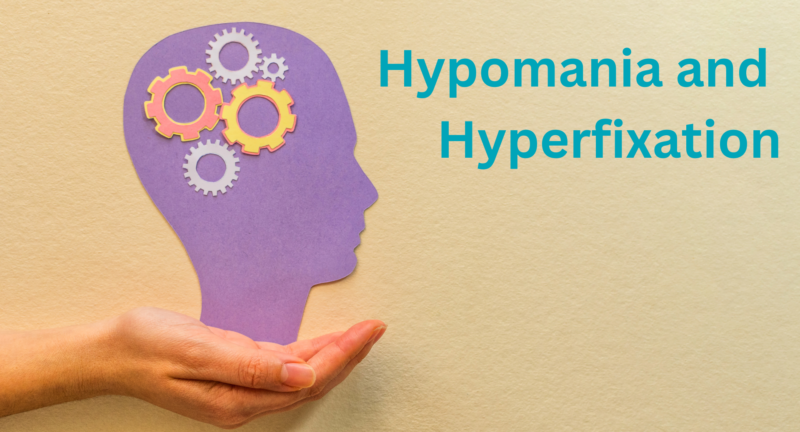
Understanding Compulsions in Religious OCD: Why They Form and How They Reinforce the OCD Cycle
This blog is part of the Religious OCD Series.
Compulsions feel like they offer relief from anxiety, but in reality, they strengthen the cycle of Religious OCD, making fears more intense and causing faith to feel more like a test of performance rather than a relationship of grace.
Introduction
For someone struggling with Religious OCD, certain rituals or mental exercises can feel absolutely necessary to keep their faith intact or prevent spiritual disaster. These compulsions often take the form of compulsive or ritualistic prayer, repeated confessions, or seeking reassurance from pastors or loved ones. While these actions may seem like acts of devotion, they are actually responses to intrusive thoughts—desperate attempts to quiet the anxiety that comes with them. Unfortunately, these compulsions only provide temporary relief and ultimately reinforce the obsessive-compulsive cycle.
Understanding how compulsions work and why they perpetuate Religious OCD is key to breaking free from this exhausting cycle and reclaiming a healthy, grace-filled relationship with God.
What Are Compulsions?
Compulsions are repetitive behaviors or mental acts performed in response to an intrusive thought. In the context of Religious OCD, these compulsions are driven by fear rather than genuine worship or devotion. Some common compulsions in Religious OCD include:
- Compulsive or ritualistic prayer – Feeling the need to pray repeatedly to ensure God has truly heard or accepted a prayer.
- Repeated confessions – Continually confessing the same sin out of fear that it wasn’t done “correctly” or sincerely enough.
- Scripture checking – Repeatedly looking up certain Bible verses to confirm one’s salvation or to counter intrusive thoughts.
- Seeking reassurance – Asking pastors, friends, or family members for constant confirmation that one is saved or has not committed an unforgivable sin.
- Avoidance behaviors – Steering clear of certain religious discussions, scriptures, or places out of fear that they will trigger anxiety.
- Mental review – Replaying past actions or thoughts over and over to ensure that no sin was committed.
Why Do Compulsions Form?
Compulsions are an attempt to neutralize or relieve the anxiety caused by intrusive thoughts. The problem is that while they may provide temporary relief, they actually reinforce the fear. Here’s how the cycle works:
- Intrusive Thought – A distressing thought enters the mind (e.g., “What if I didn’t pray sincerely enough?”).
- Anxiety Increases – The thought triggers deep fear, leading to distress and uncertainty.
- Compulsion Performed – The person engages in a ritual to ease the fear (e.g., repeating the prayer multiple times).
- Temporary Relief – Anxiety subsides for a short while, reinforcing the belief that the compulsion “worked.”
- Reinforcement of OCD Cycle – Over time, the brain learns that relief only comes from performing the compulsion, making the obsession stronger and more intrusive.
This cycle traps the individual in an ongoing struggle, where compulsions are relied upon more and more to manage anxiety, rather than trust in God’s grace and sufficiency.
What Does the Bible Say About This Struggle?
Scripture encourages believers to trust in God’s grace rather than rely on their own efforts for assurance. Jesus Himself reassures us that following Him should not be an unbearable burden:
Matthew 6:7
“And when you pray, do not heap up empty phrases as the Gentiles do, for they think that they will be heard for their many words.”
This verse reminds us that endless repetition does not make a prayer more effective or sincere in God’s eyes.
Matthew 11:28-30
“Come to me, all who labor and are heavy laden, and I will give you rest. Take my yoke upon you, and learn from me, for I am gentle and lowly in heart, and you will find rest for your souls. For my yoke is easy, and my burden is light.”
This passage reminds us that Jesus does not intend for His followers to live in constant fear and exhaustion but rather in the peace of His grace. If you struggle with feeling this peace, know that it does not mean you are failing—God’s grace is still at work, even when feelings of anxiety persist.
These passages encourage a trust-based relationship with God rather than one driven by fear and endless attempts at spiritual perfection.
Breaking Free from Compulsions
Recognizing and resisting compulsions is a critical step in overcoming Religious OCD. Some helpful strategies include:
- Identifying Compulsions – Pay attention to behaviors done out of fear rather than genuine devotion.
- Reducing Rituals Gradually – If you feel the urge to pray multiple times for reassurance, try stopping at one and sitting with the discomfort.
- Resisting Reassurance-Seeking – Instead of asking others for constant reassurance, remind yourself of God’s promises in Scripture.
- Accepting Uncertainty – Recognizing that faith involves trusting in God’s grace, even when feelings of certainty are absent.
- Seeking Professional Help – A Christian counselor or therapist trained in OCD treatment can help guide you through Exposure and Response Prevention (ERP), the gold-standard treatment for OCD.
What’s Next?
In the next article, we will explore how Religious OCD affects a believer’s walk with Christ, including how it can lead to avoidance, isolation, and spiritual exhaustion.
More on that next week…
For Kentucky Residents
If you live in Kentucky and are seeking support for religious OCD or scrupulosity, our team at Next Step 4 Mental Health in Louisville is here to help. We offer compassionate, evidence-based care—both in-person and through telehealth—for children, teens, and adults.
- nextstep.doctor
- 502-339-2442
- contactus@nextstep.doctor
For Those Outside Kentucky
If you’re not a Kentucky resident, we encourage you to seek care from a licensed mental health provider in your area. Professional support can be a vital step toward healing and peace.
Note: This article is for educational purposes only and is not intended as medical advice. Please consult a licensed mental health provider for appropriate care.
Related Posts
Hypomania and Hyperfixation: What’s the Difference?
March 26, 2023
Mental health conditions can manifest in various ways, and two related concepts...
Navigating Obsessive Compulsive Disorder (OCD) in a Post-Pandemic World
June 27, 2021
Obsessive Compulsive Disorder (OCD) affects the brain and behavior and is...


